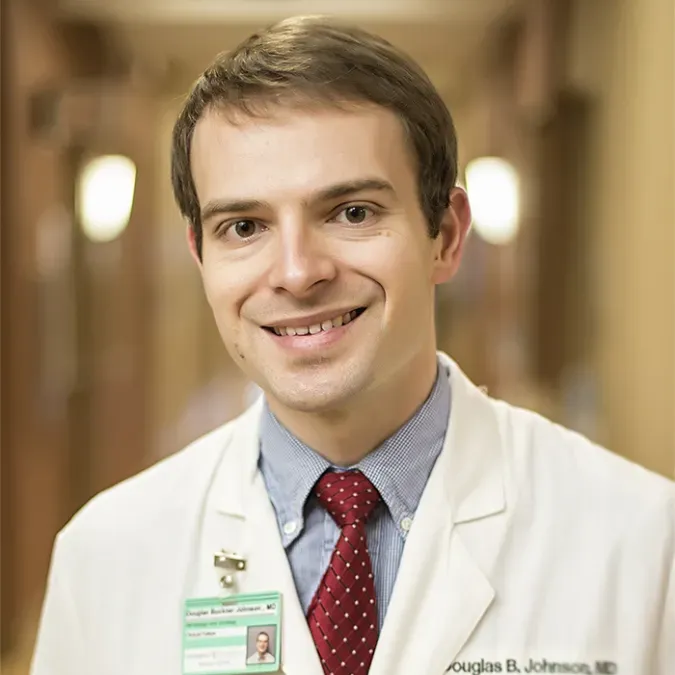These researchers dedicate their careers to finding new treatments and cures for people with cancer.
Conquering Cancer with Dr. Johnson
Cancer research and treatment has come a long way over the last decade, thanks to the hard work of dedicated researchers and the generosity of donors who make their work possible. One of the most noteworthy advances, immunotherapy, has proven especially promising for people with melanoma. Immunotherapy employs an individual’s immune system to fight their cancer. When effective, it can stop or slow the growth of cancer cells, prevent cancer from spreading to other parts of the body, and even help the immune system more efficiently destroy cancer cells.
Unfortunately, not all people respond to immunotherapy, and it can be difficult to tell which patients will benefit from the treatment.
Dr. Douglas B. Johnson, assistant professor of medicine at Vanderbilt University Medical Center, is working to address this issue. Thanks in part to a Conquer Cancer Young Investigator Award and, later, a Conquer Cancer Career Development Award, Dr. Johnson and his team have been studying the differences between patients who respond to immunotherapy and those who do not. They have recently identified several genetic mutations and other molecular markers that seem to predict response to immune therapy.
They have also been investigating new treatment options for patients who do not respond to immune therapy. “Patients who fail immune therapies need additional treatment options,” said Dr. Johnson. “Currently there are none available in many cases, but the Career Development Award has allowed us to study this unmet need and develop new targeted therapies for patients with melanoma.”
Dr. Johnson’s research has led to a clinical trial examining the use of a drug, trametinib, in patients with a particular type of melanoma containing unusual mutations in a gene called BRAF. The results of the trial could ultimately lead to better outcomes for people with this disease. Dr. Johnson knows from personal experience just how meaningful his work could be.
“My grandmother actually died of breast cancer while I was early in college,” noted Dr. Johnson. “I also had a close friend when I was in medical residency who developed stage three melanoma; looking at the treatment options at that time, there was essentially nothing effective for melanoma at that point.”
“This research allows us to give the right treatment to the right patient with melanoma,” explained Dr. Johnson. “Studying which patients would benefit from immune therapy allows us to specifically target those therapies to the right patients.”
Ultimately, the support of Conquer Cancer Foundation donors enabled this important work.
